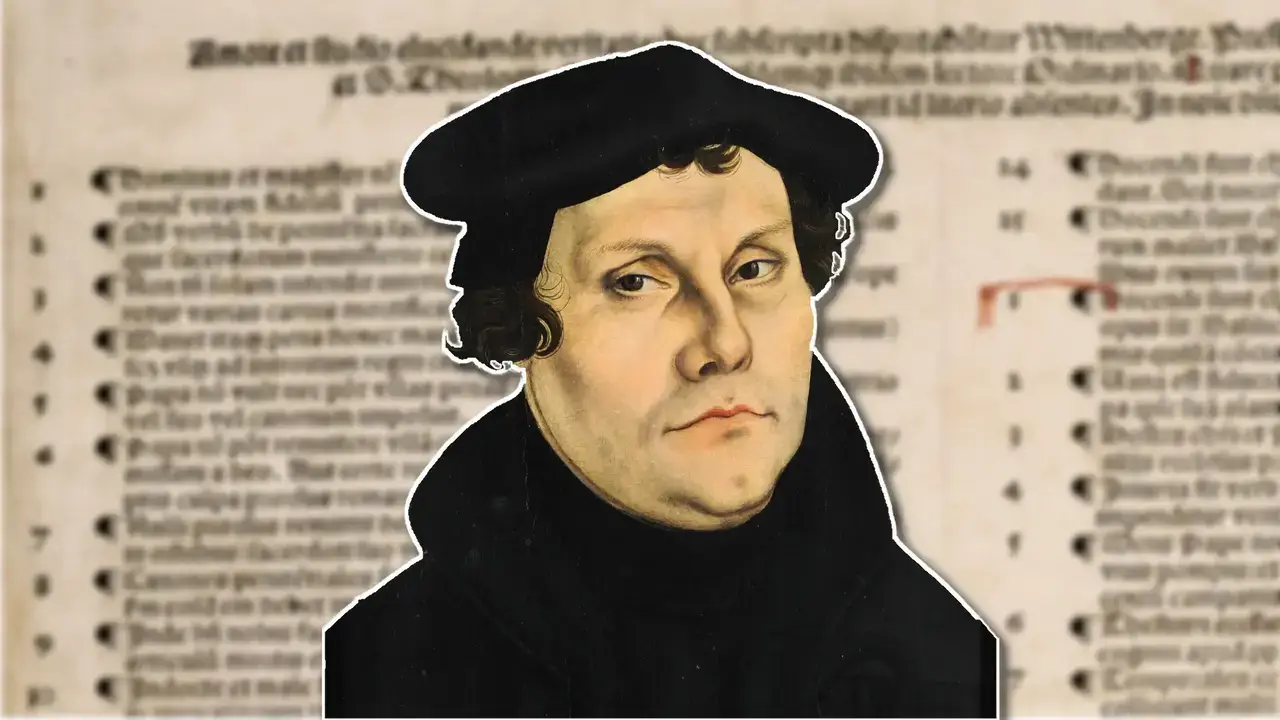Martin Luther was a prominent figure in the 16th century whose actions forever altered the religious and political landscape of Europe. A German priest, theologian, and professor, he is primarily known for initiating the Protestant Reformation, which led to the fragmentation of the Roman Catholic Church and the establishment of various Protestant denominations. Luther’s life and teachings played a pivotal role in reshaping the religious and cultural fabric of Europe during a time of profound social and intellectual transformation.
Table of Contents
Early Life and Education
Martin Luther was born on November 10, 1483, in Eisleben, a small town in what is now Germany. His father, Hans Luther, was a miner, and his mother, Margarethe Luther, came from a modest background. As a child, Luther exhibited remarkable intelligence and was sent to study at the University of Erfurt, where he pursued a Bachelor of Arts degree. Later, he began studying law, but his life took a different turn.
Religious Awakening
In 1505, while returning to the university after a visit to his family, Luther experienced a life-changing event. Caught in a violent thunderstorm, he made a vow to St. Anne, the patron saint of miners, that if he survived, he would become a monk. Luther survived the storm, and in 1505, he entered the Augustinian Monastery in Erfurt, where he took his vows as a friar.
Within the monastery, Luther wrestled with a deep sense of spiritual turmoil. He was known for his obsessive religious zeal, spending hours in confession and prayer, trying to reconcile his sense of guilt and unworthiness. His superiors recognized his dedication and decided to send him to Wittenberg to study theology, believing that further academic pursuits might help him find peace.
The Ninety-Five Theses
In 1517, Luther, now a professor of theology at the University of Wittenberg, became increasingly critical of certain practices within the Catholic Church, particularly the sale of indulgences. Indulgences were documents sold to the faithful, promising the remission of sins and time off from purgatory for themselves or their deceased loved ones. Seeing these practices as corrupt and contrary to the teachings of the Bible, Luther composed his famous Ninety-Five Theses and nailed them to the door of the Castle Church in Wittenberg on October 31, 1517.
This act of protest was a catalyst for a massive religious upheaval. Luther’s theses, originally intended for scholarly debate, were translated and printed in German, rapidly spreading across Europe. His ideas resonated with a growing number of people who were disillusioned with the Church’s abuses and excesses.
The Spread of Lutheranism
Luther’s writings, including “The Bondage of the Will,” “On the Babylonian Captivity of the Church,” and his translation of the Bible into German, played a crucial role in the dissemination of his ideas. The printing press, a relatively new technology at the time, greatly facilitated the spread of his works.
Luther’s teachings emphasized the idea of salvation by faith alone, the authority of scripture, and the priesthood of all believers. These ideas laid the foundation for what became known as Lutheranism, the first and one of the most significant branches of Protestantism. His influence was felt not only in Germany but throughout Europe, leading to the formation of various Protestant denominations that would change the religious landscape forever.
Conflict with the Catholic Church
The Catholic Church responded to Luther’s criticisms with various degrees of resistance. In 1521, Luther was excommunicated by Pope Leo X, and the Holy Roman Emperor, Charles V, declared him an outlaw at the Diet of Worms. Despite these condemnations, Luther found protection from sympathetic nobles, including Frederick III, Elector of Saxony, who sheltered him in Wartburg Castle.
Luther’s translation of the Bible into German was a monumental achievement that made the scriptures accessible to the common people. His work and teachings galvanized the Protestant movement, which rapidly gained followers and political influence.
Legacy and Impact
Martin Luther’s influence extends far beyond the religious sphere. His Reformation had profound political, cultural, and social implications. The Reformation contributed to the rise of individualism, the spread of literacy, and the decentralization of religious authority. It also laid the groundwork for the Enlightenment and the eventual development of modern Western democracy.
Luther died on February 18, 1546, but his legacy endures. Today, Lutheranism remains a significant branch of Protestantism, with millions of adherents worldwide. The Protestant Reformation initiated by Martin Luther was a key turning point in European history, shaping the religious and cultural landscape in ways that continue to influence the world to this day.






